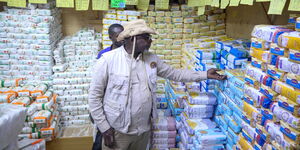The Kenya Revenue Authority (KRA) was given the green light to add a service tax on purchases made by debit cards as it enhances measures on revenue collection.
On Monday, November 9, the Appeal Court ruled that the authority has the right to tax payments made by banks to card companies.
The ruling was made in a case whereby KRA appealed a ruling made in favour of a local bank that had been protected from remitting royalties amounting from interchange fees.
Justices Wanjiru Karanja, Kathurima M’Inoti and Fatuma Sichale overturned a ruling made by High Court Judge George Odunga and declared that an interchange fee paid by one bank to another should attract withholding tax.
An interchange fee is charged by a bank to facilitate the transfer of money from a cardholder to a merchant, for example, a supermarket or petrol station.
The judges argued that the tax should be implemented owing to the fact that a transaction between the banks is a professional service. This ruling is set to impact customers who purchase commodities through the cards.
Debit cards deduct money directly from a consumer's checking account to pay for a purchase and eliminate the need to carry cash.
Cardholders present their cards to be swiped through a point-of-sale machine supplied by the acquiring bank.
This is where KRA is seeking to add tax, arguing that using the point-of-sale machines amounts to a service tax.
"We are persuaded that the evidence on record properly established that payments made to card companies were royalty and further interchange fees were for management services. Therefore both payments were subject to withholding tax," appellate judges ruled.
This development comes a few days after KRA unveiled a new strategy for raising revenue. Treasury introduced a Minimum Tax that will affect all businesses, whether one makes a profit or not
Others include leveraging on information technology to improve revenue collection through the use of third party data and automation of processes to improve Value Added Tax collection (VAT), comprehensive audit of exemptions to identify multiple uses of single exemption.
Further measures comprise of making relevant tax demand and integration of government systems to allow for the third-party data matching to improve service delivery.












